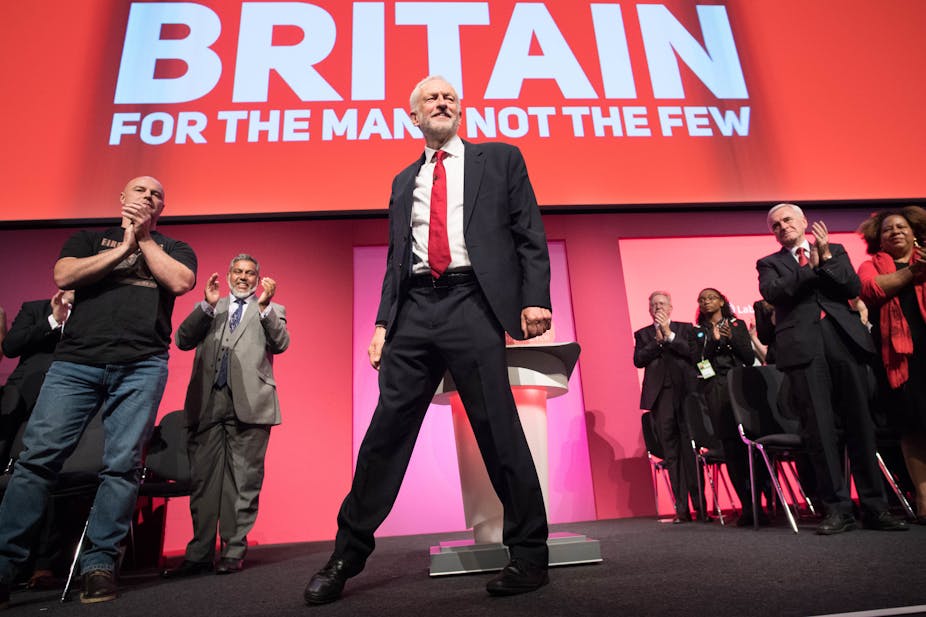In his fourth conference speech as Labour Party leader, Jeremy Corbyn offered a clear pitch to “left behind”, traditional working-class voters. It’s clear that the Corbyn leadership is worried about a disconnect between this demographic and the Labour Party. It is reported that some of these voters have come to see Labour as having moved away from traditional “pie and a pint” style of supporters, and more towards quinoa-eating, protest-supporting festival goers.
These “communities held back for too long” as Corbyn put it, not only make up a critical heartland for Labour, but also tended to favour Leave in the 2016 Brexit referendum. This has created a difficult line for Corbyn to walk between EU-wary voters in traditional Labour and a party membership which is overwhelmingly opposed to Brexit. The complex balancing act was reflected in Corbyn’s rather vague reference to the possibility of a new referendum, despite the membership vote that took place the day before his speech. Such a referendum was only hinted at with a demand for a general election, and “failing that, all options are on the table”. Exactly what that means was left deliberately lacking in details, thus continuing Labour’s policy of “constructive ambiguity”.

Corbyn also addressed, again rather vaguely, the party’s trouble with accusations of antisemitism. He attacked all forms of discrimination, but did not mention the accusations directly. Instead he tried to assure the Jewish community that the party was their ally. This was later matched – and perhaps a little undermined – by a condemnation of Israeli actions in Gaza and the “discriminatory” nation-state law, as well as a commitment to recognising a state of Palestine as soon as Labour enters government. Presumably that section was meant to illustrate the possibility of still being able to criticise Israel within the structures of the party’s new policy on antisemitism.
Good PR
What we know as the “leader’s speech” grew out of what used to be called “The Parliamentary Report”. This started life as a written document submitted to conference for debate (which usually meant severe and extensive criticism). Over time, around the 1960s, the written document was replaced by a speech, and the opportunity for debate curtailed and eventually dropped entirely – much to the anger of some party activists. It is clear that the Corbyn leadership have chosen not to reintroduce the membership voice element of this event – very sensibly so from a PR perspective.
The second thing to note is that the speech comes at the very end of conference proceedings. This means that nothing said in the speech can be undermined by subsequent votes in the hall and that delegates don’t have the opportunity to react to the speech from the conference rostrum – again a very sensible PR choice.
The two things together illustrates how reluctant any leadership – including one as wedded to the idea of membership voice as Corbyn’s – to compromise the critical PR aspects of the annual speech.
There were clearly many specific policy commitments that provided plenty of meat to satisfy the conference delegates and, equally, to anger his critics. All told, the speech was marked by having to balance many different audiences, whether it be on Brexit or antisemitism/Palestine. The delivery was reasonably assured and free of major disasters, which in itself counts as a win for any party leader.
This was not a high stakes speech for Corbyn – unlike Theresa May’s next week – and he delivered a solid enough performance, free of major external pressures. There are clearly those in the party who will feel they’ve been handed a vague compromise rather than a firm commitment, especially on Brexit. Nevertheless, Corbyn can move on from the conference and his speech with a sense of reasonably, if not outstanding, success – especially considering the difficulties the party has had with Brexit and the summer of bad antisemitism headlines.

